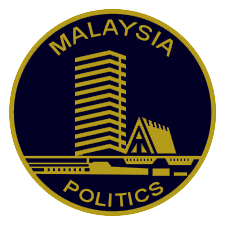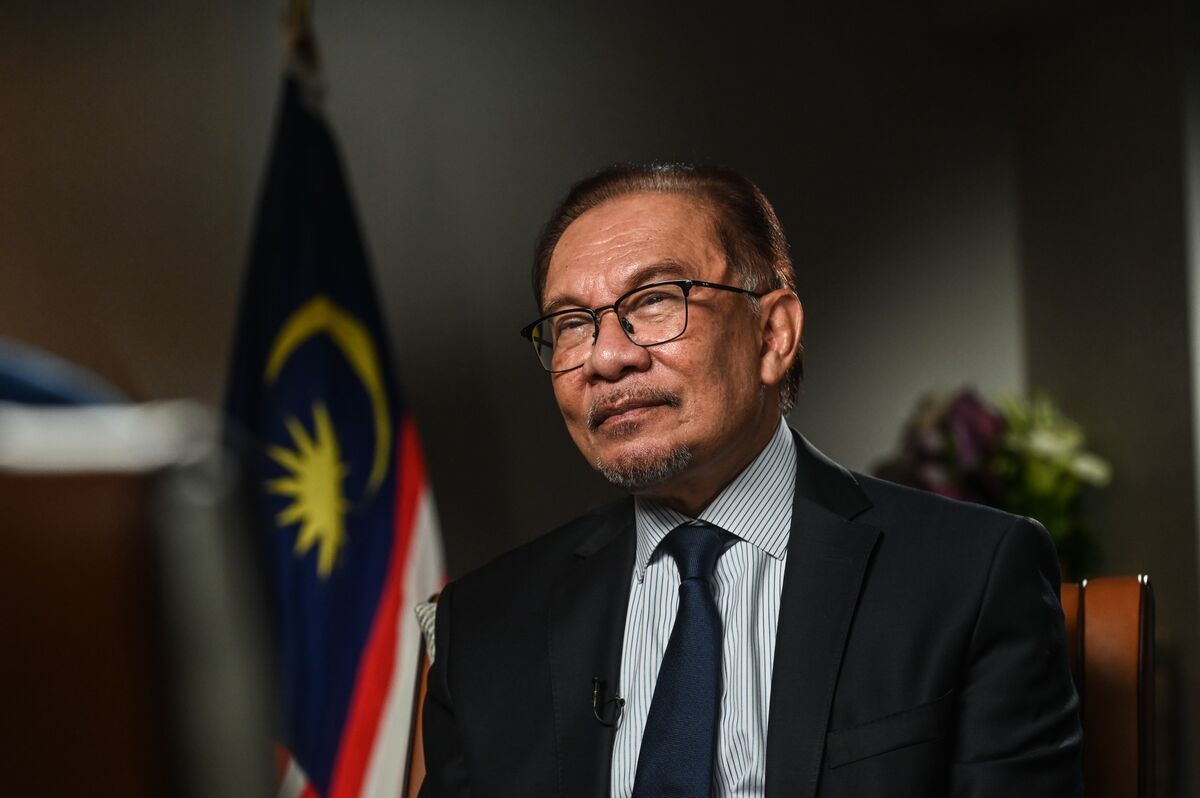South China Sea issues better resolved within region, PM says Malaysian leader looking to attract investment from US, China Malaysian Prime Minister Anwar on South China Sea, Foreign Investments Unmute WATCH: Malaysia’s Anwar talks about the territorial dispute in the South China Sea, and Malaysia’s efforts to lure investments from overseas.Source: Bloomberg
Have a confidential tip for our reporters? Get in Touch Before it’s here, it’s on the Bloomberg Terminal LEARN MORE
By Anisah Shukry
September 22, 2023 at 8:33 AM GMT+8 Updated on September 22, 2023 at 11:13 AM GMT+8
Listen
4:30
Malaysian Prime Minister Anwar Ibrahim said China’s explanation of a new map that appeared to expand its claims over disputed land and waters in the South China Sea was “reassuring,” as he advocated for nations in the region to resolve maritime issues among themselves. Chinese Premier Li Qiang, at a recent gathering in Jakarta, pledged the country will not be aggressive and will continue to negotiate competing territorial claims, Anwar said in an interview with Bloomberg Television’s Haslinda Amin in New York. China wants an amicable resolution over disputed maritime claims, Anwar said.
In late August, China released a new map with a “10-dash line” that appeared to expand its claims over land and waters of its neighbors. For many years, Beijing has asserted that nearly the entire South China Sea marked by the so-called “nine-dash line” is within its territory — an assertion that overlaps with separate claims by Brunei, Malaysia, the Philippines, Taiwan and Vietnam.
Why the South China Sea Fuels US-China Tensions: QuickTake
Escalating tensions in the South China Sea have seen the US moving to play a bigger role in the conflict. The White House has called China out for its increasingly risky military maneuvers in the region.
Disputes over overlapping claims in the South China Sea should be resolved regionally, Anwar said, adding all parties should not “unnecessarily provoke” each other.
China’s Fresh Map Claims Over Taiwan, Disputed Sea Stir Protests
Anwar is in the US to attend the United Nations General Assembly. With the geopolitical divide between the world’s two biggest economies widening, Malaysia is positioning itself as a neutral base as it looks to lure the likes of Microsoft Corp. and Alphabet Inc.’s Google. The Southeast Asian nation secured approved investments of 132.6 billion ringgit ($28 billion) in the first half of the year, up 7.8% from the same period a year ago.
“As far as the South China Sea is concerned, our position is it’s in the centrality of Asean, that it should be resolved within Asean and within the region,” Anwar said, referring to the Association of Southeast Asian Nations. While the US has been a traditional ally in supporting democracy, having “excellent terms with our neighbors” is also key especially with China, which is a major trading and investment partner, he said.
Malaysia is among several Asian countries that have objected to China’s territorial claims in the waterway. A 2016 international arbitration decision that invalidated China’s expansive claims didn’t stop it from reclaiming and building on those maritime features.
“There have been posturing about possibilities of a clash for decades now — it does not happen and I take a more optimistic view of the future,” said Anwar, 76. “Our relations with our neighbors is excellent. There is no reason to be unduly concerned about the possibility of tensions.”
Others are taking a firmer stance. On Wednesday, the Philippine government said it’s considering a complaint against China in international court for damages to its coral reefs in the South China Sea. Manila has been releasing videos and images of the persistent confrontations between its coast guard and Chinese ships in a bid to pressure Beijing to stop what it calls “aggressive” acts in the disputed sea.
Based on his own engagements with the US and China, “I don’t see any real threat or tension that is being displayed outside excepting for expressing concerns and of course protecting their turf,” said Anwar, adding that it’s “understandable but not too worrying” to him.
Anwar said he was looking toward attracting investment from the US and China equally, and that clearer policies from his country have helped. He proposed Southeast Asian counties work together to coordinate incoming investments to capitalize on their respective strengths and complement one another.
Malaysia Says Asean Is a Winner From Shifting Supply Chains
During his US visit, Anwar told the business community he would tackle corruption and revamp the justice system to make Malaysia more attractive, according to a statement from the US-ASEAN Business Council Thursday. Anwar’s anti-graft credentials have come under scrutiny after a key ally was freed of corruption charges earlier this month, with one lawmaker exiting the government in protest.
Critics are now wondering if a similar reprieve is coming for former Prime Minister Najib Razak, who was jailed last year for his role in the multi-billion dollar 1MDB scandal and faces multiple other related charges in court. Barisan Nasional, which Najib led when he was prime minister, is a key party in Anwar’s government and has been pushing for Najib’s royal pardon.
Anwar said in Friday’s interview that the case was ongoing and that Malaysia’s king has the sole discretion to issue a pardon.
“Any convicted person has a right to appeal for a pardon. But I don’t think we should preempt this,” said Anwar. “We are a country guided by rule of law and I have taken a strong position on the issue of governance and rule of law.”
(Updates with further details from Anwar’s interview in final five paragraphs.)
Follow all new stories by Anisah Shukry


